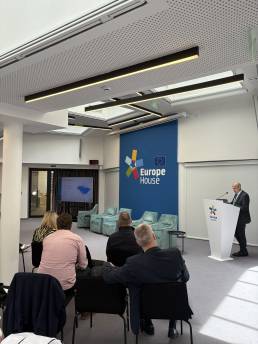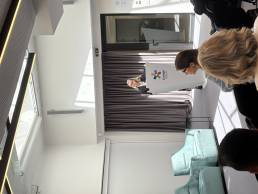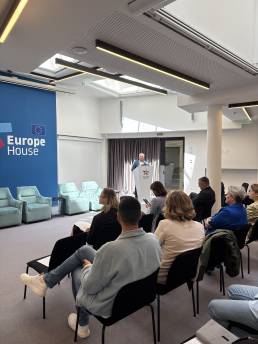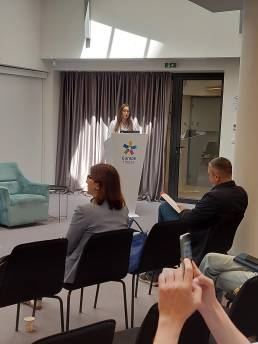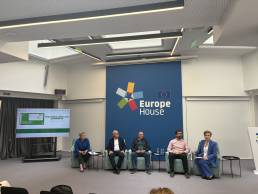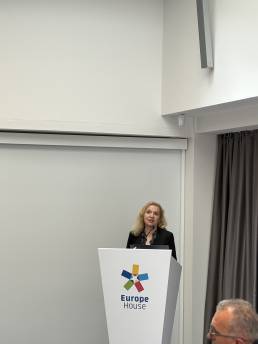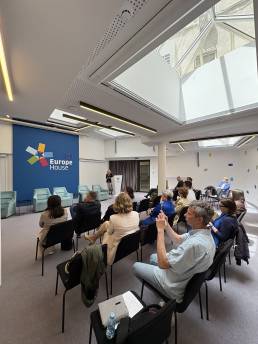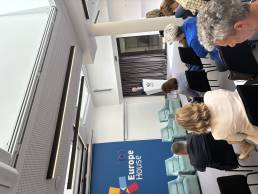As part of this year’s Western Balkans Circular Economy Week 2025, Sarajevo once again hosted key stakeholders driving the transition to a circular economy in the region. On May 30, 2025, the event “Practical Circular Economy” was successfully held at the Europe House Sarajevo, organized by members of the LogEx community. The event served as a dynamic platform for knowledge exchange, featuring real-world examples, innovative practices, and forward-looking policies supporting the shift toward circularity in Bosnia and Herzegovina.
The event brought together representatives of small and medium-sized enterprises, government institutions, academia, the financial sector, and international organizations. Its structure comprised three thematic segments:
-
Mini Expo #1: Circular Economy in SMEs – From Idea to Practice
-
Mini Expo #2: Projects Shaping a Circular Future
-
Panel Discussion: Circular Economy as a Driver of Local Development
In the session “Circular Economy in SMEs – From Idea to Practice,” participants gained first-hand insights into how circular business principles are being implemented in the construction and textile industries. Notable examples were shared by Bosman d.o.o. and Sugar on Top, two companies demonstrating practical application of circularity in their operations.
The second session, “Projects Shaping a Circular Future,” featured leading regional initiatives funded under the Interreg Danube programme:
-
CircularDigiBuild, focused on integrating digital technologies and innovation in the construction sector to advance circular practices.
-
GreenTex, coordinated by SERDA, promoting sustainable and eco-friendly solutions in the textile industry.
-
We.circular, led by the Foreign Trade Chamber of BiH, strengthening digital and industrial capacities of women entrepreneurs in the Danube region to support a sustainable transition to circular economy models.
The core of the program was the panel discussion “Circular Economy as a Driver of Local Development,” which emphasized that the successful implementation of circular business models is only achievable through coordinated cooperation between the public sector, financial institutions, academia, and the private sector. A joint, integrated approach is essential to achieving sustainable development and revitalizing local economies.
We extend our sincere gratitude to the panelists for their valuable insights and expert contributions:
-
Mr. Senad Zekić (Federal Ministry of Energy, Mining and Industry),
-
Ms. Adnana Tatlić–Holjan (Development Bank of the Federation of BiH),
-
Prof. Dr. Darko Petković (Center for Innovation and Entrepreneurship, University of Zenica),
-
Mr. Vladimir Grabovac (Biona & Beyond).
For the purpose of the event, a dedicated brochure was developed and presented, showcasing good practice examples of companies applying circular business models. The brochure aims to raise awareness of the importance of circular economy as a tool for sustainable development and enhanced business performance.
The brochure is available online and we invite all interested stakeholders to access it and draw inspiration from these valuable examples to improve their own business practices through circular economy principles.

